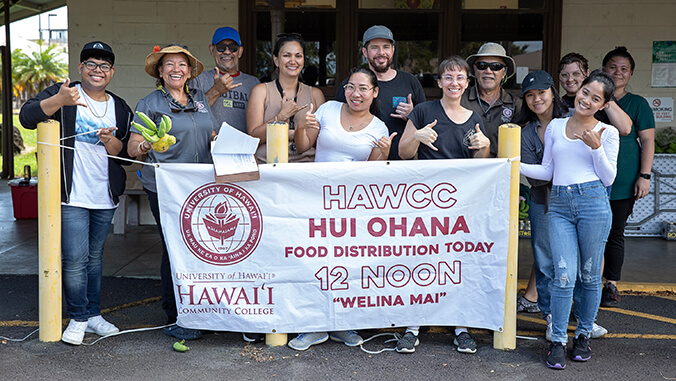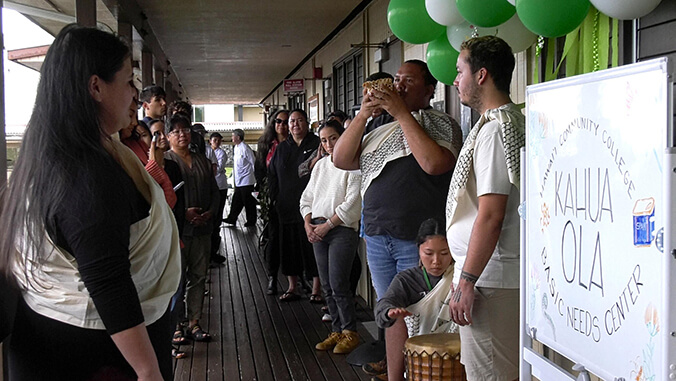
In an effort to assist low-income and first-generation students in obtaining accessible and affordable college experiences, the Stupski Foundation has provided a total of $1.8 million to support the University of Hawaiʻi, particularly students attending one of the seven UH Community Colleges.
The gifts will cover costs over five academic years through spring 2027, and will be used to fund a diverse set of initiatives to help students navigate the financial aid process, as well as connect to basic services and resources such as housing and food. The Stupski Foundation was among the supporters who together gave more than $1 million in early 2020 to help UH students impacted by the COVID-19 pandemic.
- Related UH News story: $1M donated to critical UH Urgent Student Relief Fund, April 15, 2020
“We believe that college education should be affordable and accessible to all low-income and first-generation students, especially for those who struggle with basic needs such as food and housing,” said Cheri Souza of the Stupski Foundation. “We recognize this support is critical to their persistence to stay in school and graduate, and their overall health and well-being.”
“The Stupski Foundation really understands how difficult it can be for college students to have access to food and financial aid so they can stay in school and graduate,” added Tim Dolan, UH vice president of advancement and UH Foundation CEO. “We’re grateful they have made basic needs for UH students a priority.”
A survey conducted during the 2020–21 academic year found that two out of five UH students had experienced hunger in the prior 30 days. A recent study also found that more than one in three students don’t have enough to eat, a problem only made worse by recent high inflation. In addition, college students who were able to buy food with the federal Supplemental Nutrition Assistance Program (SNAP) under pandemic boosts will lose their benefits in March.
Two years ago, the UH Basic Student Needs Committee launched the Student Basic Needs website to assist students in finding the help they need, not only with buying food but also childcare, transportation, mental health services and financial aid to pay for school.
“Our students should not have to choose between food and learning,” said UH President David Lassner. “Satisfying students’ basic needs is essential for them to be able to complete their education and thrive.”
Stupski Foundation supported initiatives
The Stupski Foundation gifts will support the following initiatives:
- Launching the Kahuaola Basic Needs Center, Hawaiʻi Community College‘s one-stop center that offers a comprehensive approach to providing cross-campus support and services opened on February 13 at the Manono campus in Hilo. In addition to helping more students apply for financial aid, the program serves as a hub for the Hawaiʻi Nutrition Employment and Training Hoʻola Ike program, which helps students to access SNAP benefits and supplemental funds for childcare, transportation and housing expenses that are often hurdles to staying in or completing college.
- The creation of the first ever systemwide UH Financial Assistance and Basic Needs Virtual Café to connect UH students to all basic needs services and resources. The initiative includes piloting a test of financial literacy programs within the Virtual Basic Needs Café, which launched at UH Mānoa and Windward CC and will roll out to the other eight campuses in 2023.
- The revision of current policies and creation of a strategic, financial aid system to remove financial barriers for UH Community College students. The goal is to help students complete financial aid applications, and to establish a new strategy for awarding financial aid at the seven community college campuses.
- The CARE Package Program at Kauaʻi CC aims to educate and empower our students with the information and supportive services needed to increase college affordability and individual resiliency. Kauaʻi CC’s vision for system’s change is a model which integrates financial aid practices into the work of the human needs program and looks to address the true cost of college attendance on Kauaʻi while building trust in the financial aid application process for families unfamiliar with the process.
Read more at the UH Foundation website.


